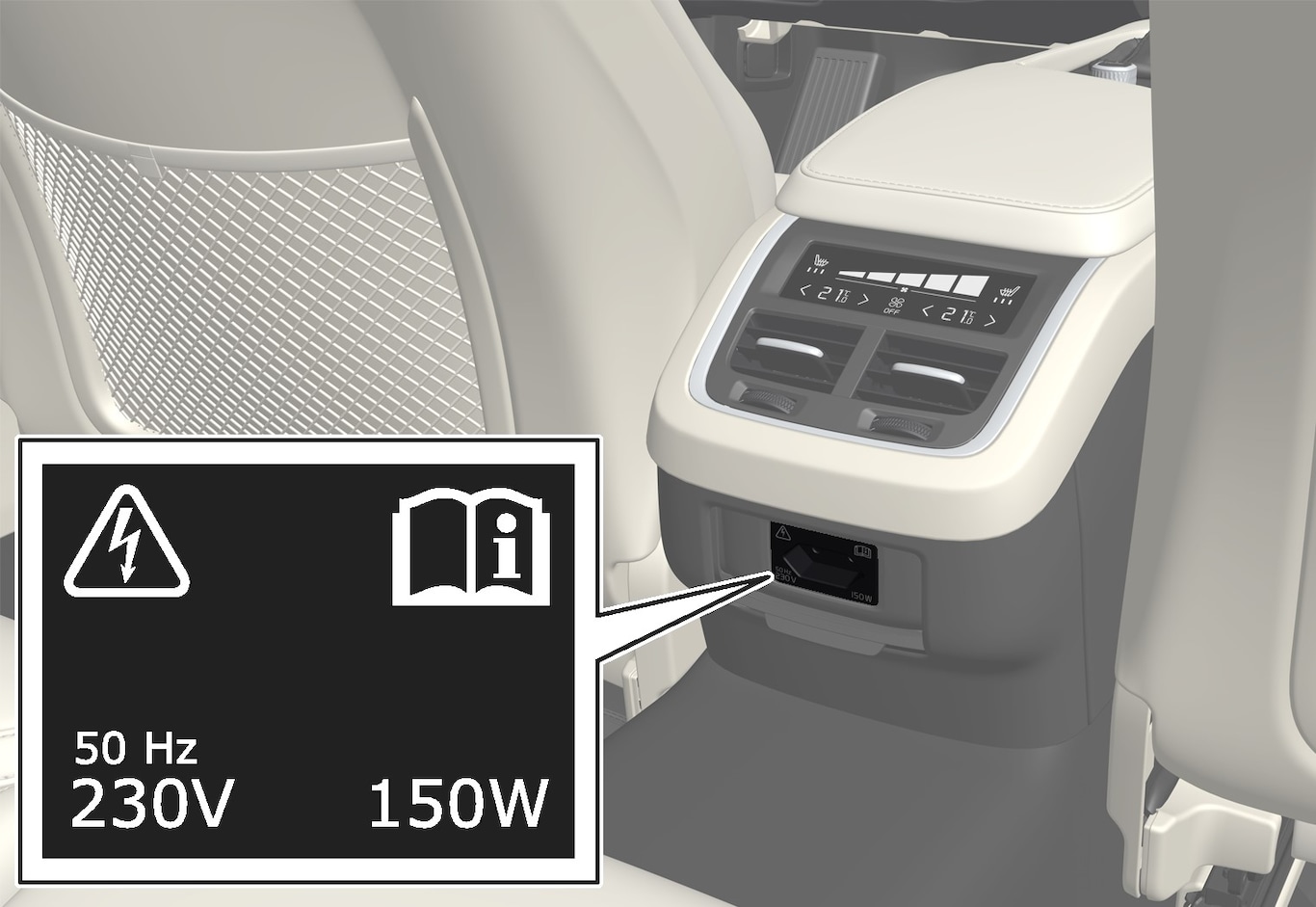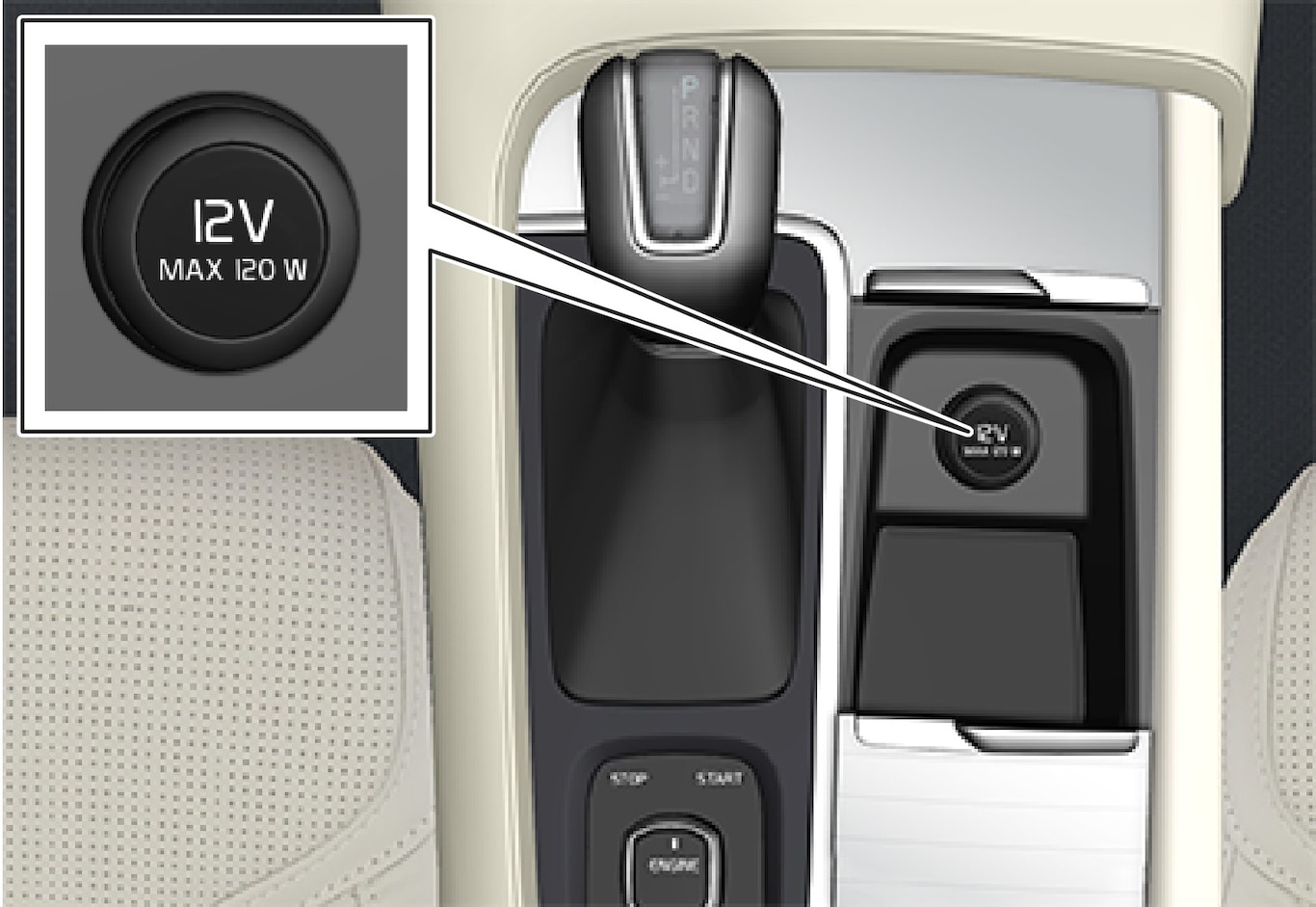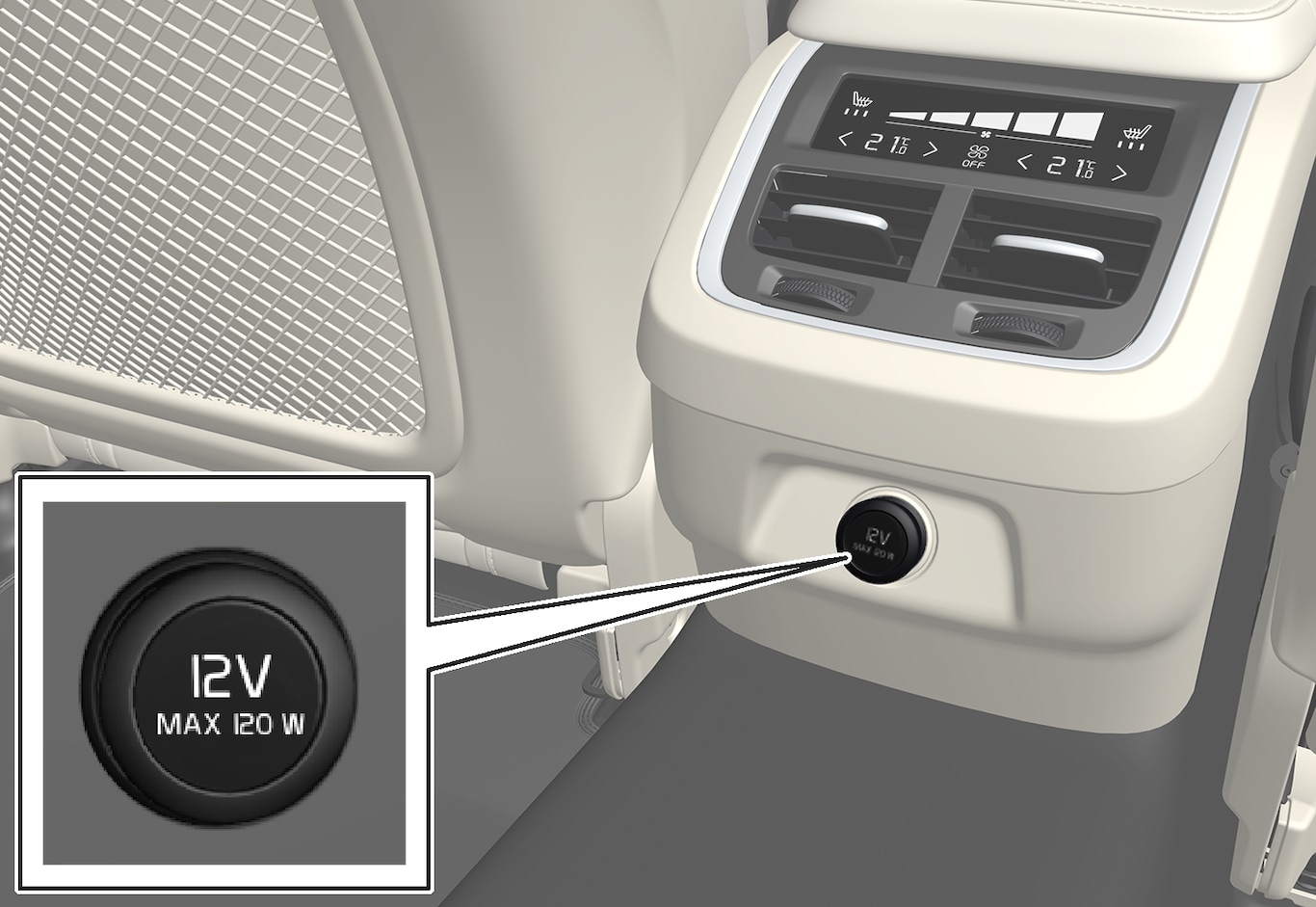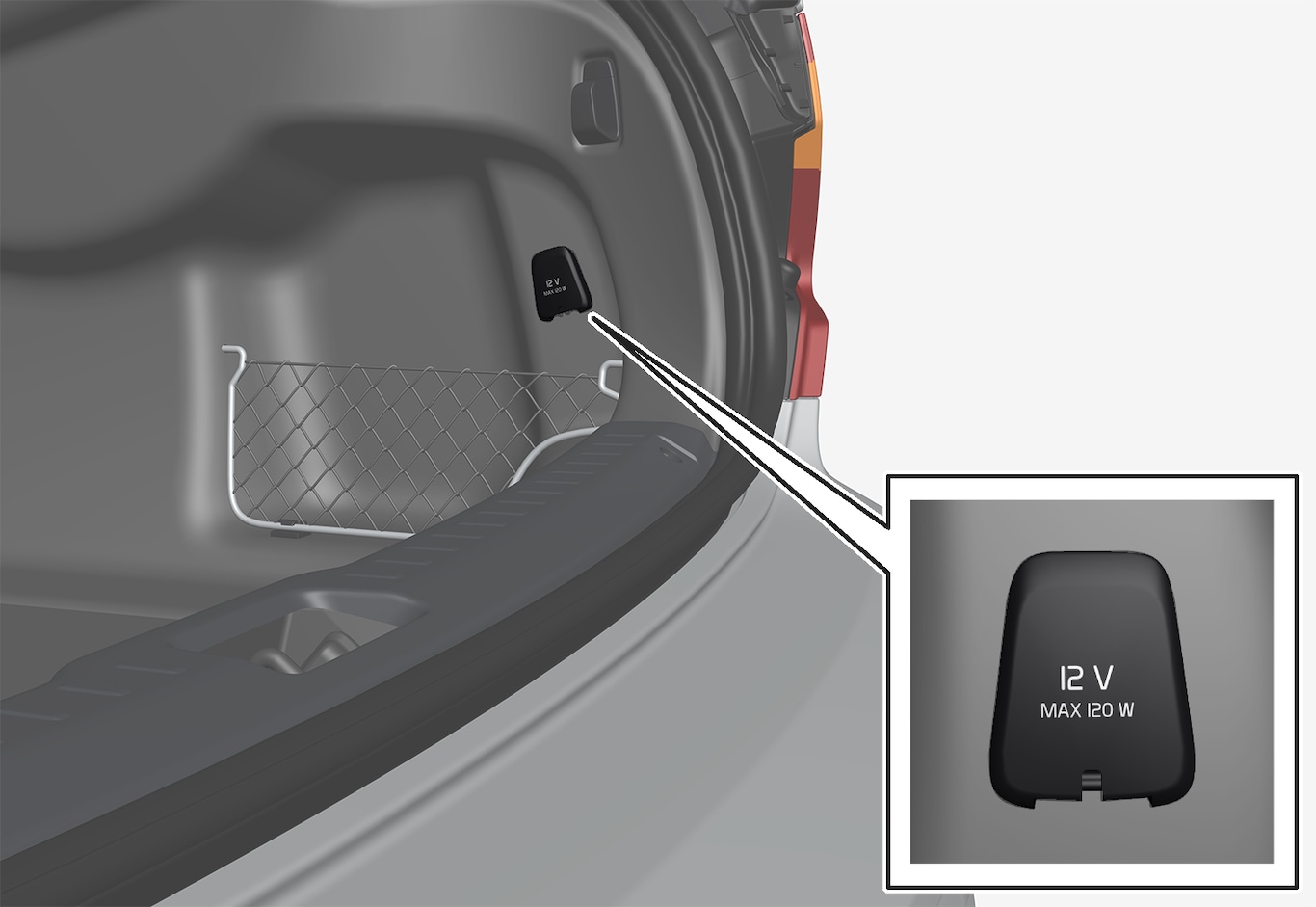Electrical sockets
In the tunnel console there are two 12 V electrical sockets and one 230 V electrical socket*, in the cargo area there is one 12 V electrical socket*.
For the sockets to supply current, the car's electrical system must be set in the lowest ignition position I. The sockets are then active as long as the starter battery level does not become too low.
If the engine is switched off and the car is locked, the sockets are deactivated. If the engine is switched off and the car is not locked, or is locked with blocked lock position temporarily deactivated, then the sockets continue to be active for a further ten minutes.
Note
230 V electrical socket*

The socket can be used for various accessories requiring a 230 V supply, e.g. chargers and laptop computers.
Important
Using the socket
Disconnect the accessory by pulling out the plug - do not pull on the cable.
Pull up the cover when the socket is not being used or the socket is left unattended.
Important
- Do not use accessories with large or heavy connectors - they can damage the socket or come loose when driving.
- Do not use accessories that can cause interference to the car's radio receiver or electrical system for example.
- Position the accessory so that it is not at risk of injuring the driver or passengers in the event of heavy braking or collision.
- Keep an eye on connected accessories as they can generate heat that can burn passengers or the interior.
Warning
- Only use accessories that are undamaged and fault-free. The accessories must be rated for 230 V and 50 Hz with connectors designed for the socket. The accessories must have a CE marking, UL marking or an equivalent safety marking.
- Never allow sockets, connectors or accessories to come into contact with water or other liquids. Do not touch or use the socket if it appears to be damaged or has come into contact with water or other liquid.
- Do not connect junction sockets, adapters or extension cables to the socket as these can override the socket's safety features.
- The socket is equipped with a protective cover, ensure that nothing protrudes in or damages the socket preventing the cover from doing its job. Do not leave children in the car unsupervised when the socket is active.
Failure to follow the advice given above can lead to severe or fatal electric shocks.
Status indication
A diode on the socket indicates its status:
| Status indication | Reason | Action |
|---|---|---|
| Steady green light | The socket is delivering current to a connected device. | None. |
| Blinking orange light | The temperature of the socket's voltage converter is too high (because for example the accessory draws too high a current or the passenger compartment is too warm). | Remove the plug and let the voltage converter cool down before reinserting the plug. |
| The connected accessory draws too much current (intermittently or continuously) or is defective. | None. The accessory cannot be connected to the socket. | |
| Diode not illuminated | The socket does not sense that a plug has been inserted. | Check that the plug is properly inserted into the socket. |
| The socket is not active. | Switch the car's electrical system to the lowest ignition position I. | |
| The socket has been active but is now deactivated. | Start the engine and/or charge the starter battery. |
If the problem persists, contact a workshop - an authorised Volvo workshop is recommended.
Warning
Never modify or repair the 230 V electrical socket yourself. Volvo recommends that an authorised Volvo workshop should be contacted.
12 V electrical socket



The sockets can be used for various accessories designed for 12 V, such as music players, cooler boxes and mobile phones.
The socket in the tunnel console can be complemented with a cigarette lighter*.